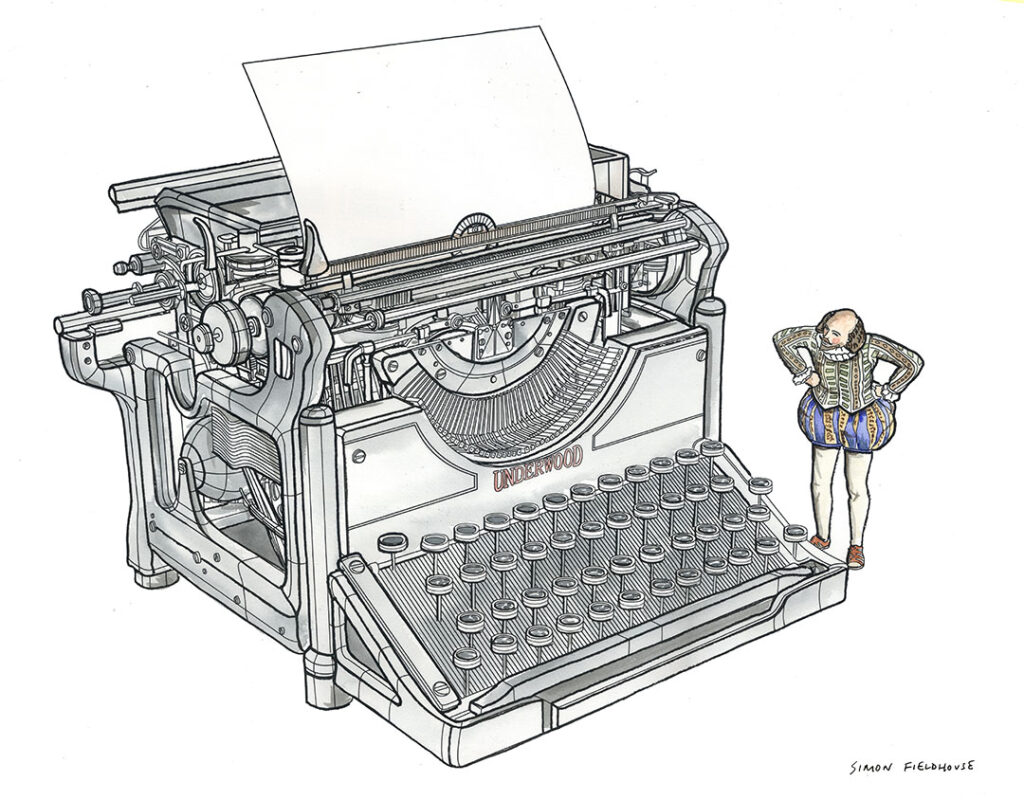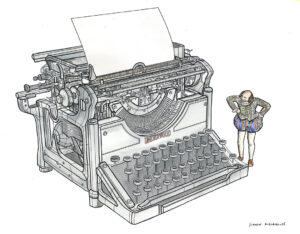
If William Shakespeare found a Typewriter

If Shakespeare were to stumble upon a typewriter, the world of literature might have encountered a seismic shift, altering the trajectory of literary history. Imagine the Bard, accustomed to quills and parchment, encountering this mechanical wonder that captures words with the tap of keys.
Initially, Shakespeare might regard the typewriter with suspicion, perplexed by its mechanics and the absence of ink-stained fingers. The clacking of keys could resonate like an unfamiliar sonnet, a symphony of letters and mechanisms. Yet, the allure of this device, its ability to swiftly transcribe thoughts onto paper, would undoubtedly intrigue his insatiable curiosity.
The typewriter’s efficiency might revolutionize Shakespeare's writing process. No longer constrained by the physical limitations of a quill, ink, and parchment, he could compose at an unprecedented speed. His plays, sonnets, and poems might flood forth in a torrent of creative fervor, with drafts meticulously typed and revised with ease.
The structure of his plays might evolve with the typewriter's influence. The ease of editing could encourage Shakespeare to experiment with intricate plotlines, nuanced character development, and expanded dialogue. The convenience might embolden him to push the boundaries of his storytelling, weaving intricate narratives that captivate audiences in new and innovative ways.
However, the essence of Shakespeare's genius lies not just in his words but in their cadence, rhythm, and poetic flow. The typewriter, with its mechanical precision, might pose a challenge to capture the lyrical beauty that defines his works. The absence of the quill's fluidity could alter the very essence of his writing, perhaps trading poetic eloquence for the briskness of typewritten prose.
Moreover, the societal impact of Shakespeare’s newfound tool cannot be overlooked. The availability of printed texts could proliferate, potentially reaching a wider audience. The democratization of his works might have occurred at a faster pace, transcending social and geographical barriers more rapidly than the print medium allowed in his time.
Yet, the question lingers whether the mechanical nature of the typewriter would stifle or enhance Shakespeare's creativity. Would the tactile sensation of a quill dancing across parchment be replaced by the rhythmic clatter of keys, or would the typewriter serve as a catalyst for a new form of artistic expression?
In contemplating the hypothetical scenario of Shakespeare encountering a typewriter, one thing remains certain: the Bard's indelible mark on literature would persist. Whether the typewriter serves as a mere instrument or a catalyst for innovation, Shakespeare's genius would continue to shape the landscape of literature, leaving an enduring legacy for generations to come.